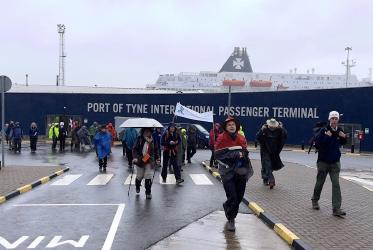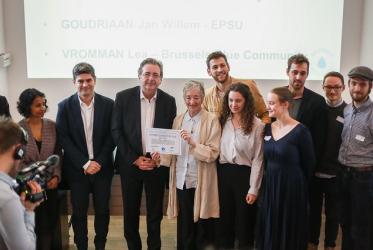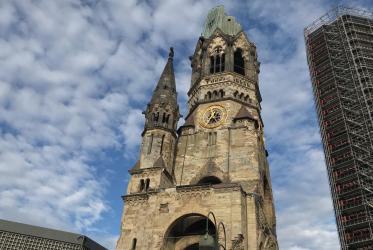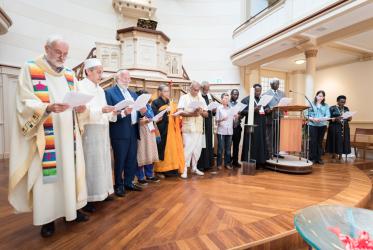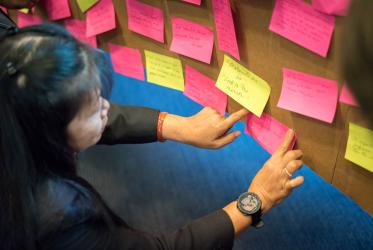Displaying 1 - 20 of 28
WCC joins gathering of Blue Communities in Brussels
06 December 2019
Dr Cecile De Sweemer, the doer of God
30 November 2018
“Love will find a way”
23 August 2018
What difference does dressing in black make?
02 August 2018
Working toward an AIDS-free generation
26 July 2018
Building bridges of faith in the HIV response
25 July 2018
Building Bridges in the global HIV response
25 July 2018
New Executive Committee members elected in Trondheim
28 June 2016
WCC strongly condemns Brussels’ terror attacks
22 March 2016
WCC/UN conference calls for coordinated action on refugee crisis
20 January 2016
“European solidarity must be strengthened”
29 October 2015
WCC urges responsibility for and support to the refugees in Europe
04 September 2015
WCC Executive Committee speaks out on migrant crises
12 June 2015

